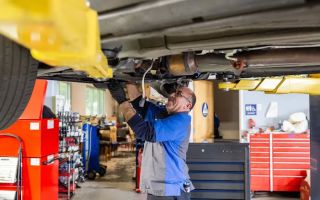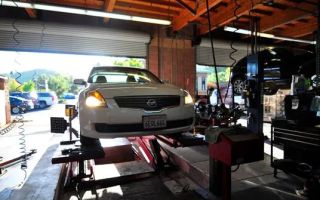How Do I Inflate a Flat Tire: A Comprehensive Guide to Fixing Your Tire on the Go
Why Flat Tires Happen and How to Recognize Them
We've all been there—driving down the road when suddenly, you hear that familiar thudding sound or feel an unusual wobble. It’s the dreaded flat tire, and it’s one of the most common roadside issues for drivers. From nails and debris puncturing your tire to a slow leak that gradually deflates the air, flat tires can happen for many reasons. I remember the first time I encountered a flat tire; I had been driving down a quiet street when I noticed my car pulling to one side. Pulling over and inspecting the tire, I saw that it had lost significant air, and that's when I realized it was time to learn how to fix it on my own.
Knowing how to inflate a flat tire can save you time and money, but more importantly, it can give you the peace of mind to handle an emergency situation. Flat tires are especially common after driving over sharp objects, such as nails or glass, and they can happen at any time. Luckily, learning how to inflate a flat tire is a simple skill that can prevent you from having to wait for roadside assistance or a tow truck.
Tools Needed to Inflate a Flat Tire
To get started on fixing your flat tire, you'll need to have a few essential tools in your car. These are the same tools I use every time I’m dealing with a flat tire, and I recommend keeping them in your car at all times:

MR. TIRE INC.
2078 New York Ave, Huntington Station, NY 11746, USA
1. A Portable Air Compressor
A portable air compressor is the most important tool you’ll need to inflate your flat tire. These compact devices are easy to store in your car and can be powered through your vehicle’s 12V power outlet. When I had my flat tire, I found a portable compressor to be a lifesaver, as it quickly pumped air back into my tire, getting me back on the road.

MR. TIRE INC.
2078 New York Ave, Huntington Station, NY 11746, USA
2. Tire Pressure Gauge
A tire pressure gauge is essential for ensuring you inflate the tire to the correct pressure. Most air compressors come with a built-in gauge, but I prefer using a separate one for accuracy. Checking the tire pressure is a crucial step to avoid over-inflating or under-inflating the tire, both of which can cause problems in the long run.
3. Tire Repair Kit
If the flat tire is caused by a puncture, a tire repair kit with rubber plugs or sealants can temporarily seal the hole until you can get to a professional repair shop. I once used a tire repair kit on a small puncture, and it worked well enough to get me to a mechanic without further issues. It’s a handy addition for your car’s emergency toolkit.
4. Jack and Lug Wrench
In case you need to replace the tire, a jack and lug wrench will be necessary to lift your car off the ground and remove the flat tire. Even if you’re only inflating the tire, having the right tools on hand can ensure that you’re prepared for any unforeseen challenges.
Steps to Inflate a Flat Tire
Now that you have all the necessary tools, let’s go step-by-step through the process of inflating your flat tire:
1. Find a Safe Location
When you realize your tire is flat, it’s important to find a safe, flat area to pull over. If you’re on a busy road, try to pull off into a parking lot or onto the shoulder to avoid any accidents. I remember driving on the highway when my tire started losing air, and I was thankful for the wide shoulder that allowed me to stop safely. It’s critical to keep your safety in mind first and foremost.
2. Turn Off the Engine and Engage the Parking Brake
Before doing anything, ensure the car’s engine is turned off and the parking brake is engaged. I’ve had a friend forget to apply the parking brake once, and the car rolled a few inches while they were working, causing unnecessary stress. Safety is always the top priority.
3. Attach the Air Compressor to the Valve Stem
Now, take the portable air compressor and attach it to the tire’s valve stem. This is where the air goes in, and it’s usually located on the side of the tire. Once the hose is securely attached, turn on the air compressor and start inflating the tire. During this step, I always ensure the compressor is securely connected to avoid any air leaks or interruptions.
4. Monitor the Tire Pressure
As the air compressor fills the tire, keep an eye on the pressure gauge. I always stop inflating when the tire reaches the recommended pressure, which can be found on the sidewall of the tire or in the car’s manual. It’s important not to over-inflate the tire, as this can lead to other issues. I once went a little too far and had to let some air out, so be careful and monitor the gauge closely.
5. Disconnect the Compressor and Check for Leaks
Once the tire is properly inflated, disconnect the compressor from the valve stem. At this point, I like to check around the valve area and the tire’s surface for any air leaks. If the tire loses pressure quickly after inflation, it might be time to repair or replace it. If all looks good, you’re ready to go!
6. Replace the Valve Cap
Don’t forget to replace the valve cap once you’re done. It helps keep dirt and debris out of the valve, ensuring the tire maintains its pressure over time. It’s a small but important step in maintaining your tire’s health.
Real-Life Flat Tire Experiences
Flat tires can happen at the worst possible time, as I’ve learned firsthand. One afternoon, I was driving to meet a friend when I noticed my car pulling to one side. I had a flat tire, and I was stranded on a busy road. Fortunately, I had a portable air compressor in my trunk, so I pulled over safely, followed the steps I just mentioned, and was able to inflate the tire enough to get to the nearest service station. It was a relief to handle the situation without needing a tow truck, and the tire repair shop was able to fix it properly.
Another memorable experience happened when a family member’s car had a flat in the middle of nowhere. There was no cell service, and the nearest help was miles away. Luckily, they had a tire repair kit and a portable compressor in their trunk. They were able to temporarily inflate the tire, drive to the nearest town, and get the tire professionally fixed. That day, they learned how important it is to have these tools in an emergency, especially when towing or roadside assistance might take too long.
Where to Get Professional Assistance
If you’re unable to fix the flat tire yourself or if you don’t have the right tools, it’s time to call for professional help. A reliable towing and roadside assistance company, such as Rescue & Towing, can assist you in these situations. They can quickly get your car to a mechanic for repair or even send someone to inflate the tire for you. Having a trusted towing service on hand can save you time and ensure your safety during these roadside emergencies.























